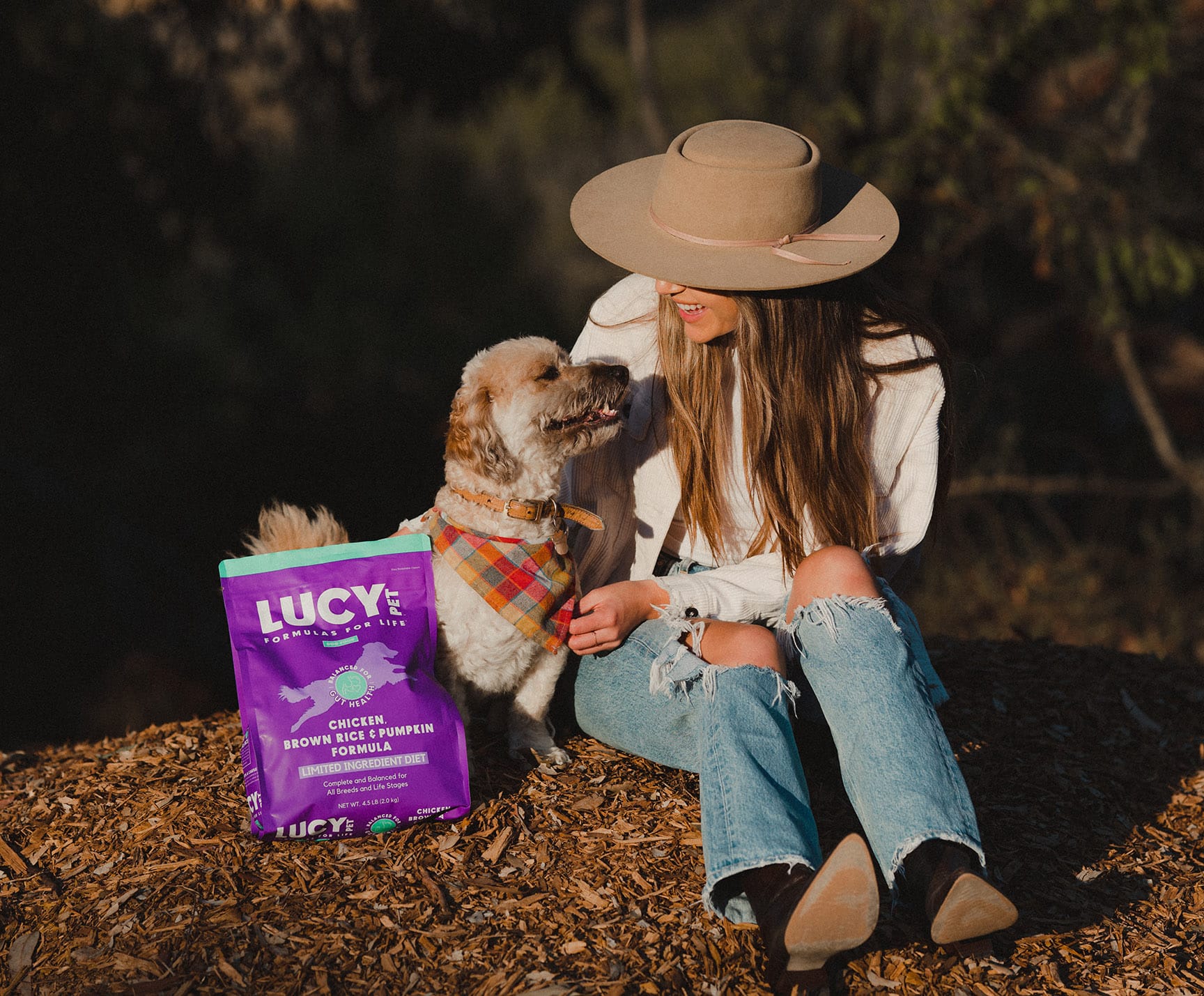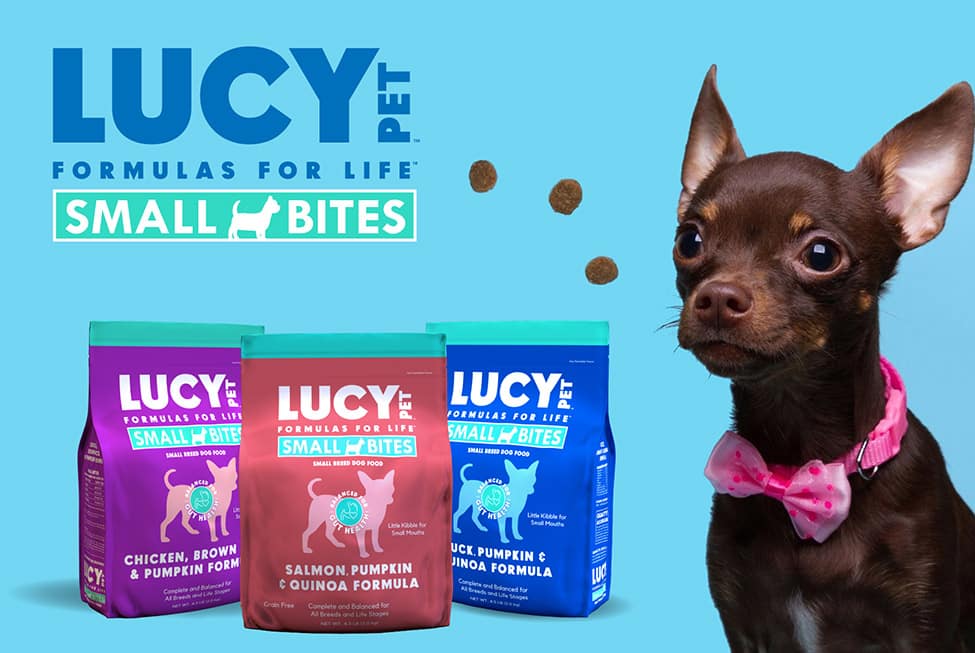
The Importance of Antioxidants for Dogs
Dogs bring so much joy and fun into our lives, so they deserve only the best when it comes to nutrition and care. Sometimes, exactly what to include in this nutritional category can become a bit confusing. The word “antioxidants” gets tossed around quite a bit, but are you truly informed on what dietary antioxidants are and why they’re important? Check out this blog to learn more about the importance of antioxidants for dogs and where to find them!
What Are Antioxidants?
Simply put, antioxidants are substances that fight, well, oxidation. Looking deeper, however, things become a bit more complex. Oxidation is a natural chemical process that appears all around us in everyday life, from the rusting of a car to the browning of an avocado. In your dog, oxidation is involved in all sorts of processes, from breaking down food to making new cells.
Free Radicals, Who?
Although oxidation is a naturally occurring process, it produces uncharged molecules called free radicals that react with and harm other molecules in the body. The damage that occurs over time is shown to cause arthritis, heart disease, cognitive dysfunction, and even cancer in adult dogs.
An antioxidant is any compound—whether in the form of vitamins, minerals, herbs, etc.—that protects against damage to cells caused by free radicals and other “reactive oxygen species.” Free radicals are composed of an odd number of electrons, making them extremely reactive. This factor creates a tendency to steal electrons from cell membranes, proteins, and DNA, which could ultimately affect the aging process of your furry friend.
The worst part is that once free radicals steal electrons, the molecules they steal from become new free radicals, thus perpetuating a dangerous cycle for your dog’s health.
Antioxidant Supplementation to the Rescue!
The way antioxidants fight these pesky electron thieves is through the gift of giving. That is, they donate electrons to free radicals without producing new free radicals in the process, thus breaking a vicious cycle and protecting your precious pup from any more damage.
Free radicals, though natural byproducts of your dog’s metabolic functions are produced in excess when dogs are elderly, ill, have been exposed to toxins, or suffer from poor nutrition. Therefore, ample exposure to dietary antioxidants is vital for your pet to remain strong and happy for as long as possible.
Benefits of Antioxidants
On top of being a really hard word to say ten times fast, antioxidants provide a myriad of benefits to your dog that makes them essential to any pet’s meal plan. In fact, there is a wide variety of fruits and vegetables that are not only rich in antioxidants, but are also made easily available for you and your pup! Before introducing specific food sources, here are the many ways antioxidants can improve your dog’s health.
- Improved Cognitive Function – A few studies found that older dogs exposed to antioxidant-rich foods were more successful in learning complex tasks than their counterparts on a controlled meal plan.
- Allergy Resistance – It has also been shown that antioxidants can help dogs that struggle with allergies, as well as coat and skin problems.
- Stronger Immune Response – Thanks to their protective nature against damage caused by free radicals, antioxidants boost the immune system and promote immune system activity.
- Healthier Brain – Antioxidants have been shown to cross the blood-brain barrier to provide essential nutrients to the brain.
- Improved Joint Health – Antioxidants reduce joint pain and inflammation.
- Better Eye Health – The anti-inflammatory properties of antioxidants help relieve dry eye and other painful eye conditions.
- Healthier Heart – An antioxidant-rich diet has been shown to reduce C-Reactive Protein (CRP), which is a marker for heart disease in dogs.
Pets in Need
The benefits of antioxidants are exceptional and can apply to any dog, no matter their age, size, or breed. However, an antioxidant-rich supplemented diet can be even more essential to dogs suffering from chronic inflammation, arthritis symptoms, skin problems, or immune response disorders.
Are Antioxidants Safe for Dogs?
The short answer: yes, if provided as part of a commercially prepared kibble or canned food. However, it is important to consider a few factors before diving into the world of antioxidants.
- Supplements – Balanced supplements are typically a better choice than individual vitamins and minerals to prevent toxicity when introducing antioxidants into a diet.
- Cancer Therapies – Although generally helpful for dogs suffering from cancer, some antioxidants may interfere with certain cancer therapies, while some may improve outcomes. Veterinary supervision is highly encouraged in these cases.
- High Doses – In some cases, there is such a thing as a surplus of antioxidants. Be sure to talk to your vet to choose the right dose of antioxidants for your dog.
Forms of Antioxidants
When designing a pet’s meal plan, dog owners can opt to provide their dogs with an antioxidant-rich diet through kibble or through supplementation alongside their usual meals. No matter what, dog owners must check the labels of whatever they feed their pet to ensure that the ingredients are natural and safe.
- Antioxidant Supplements – Sometimes, dog owners will opt to provide their dog with antioxidants supplement style. Antioxidant supplements are a great way of introducing any missing antioxidants into a pet’s diet. It is important not to “over supplement” your dog or cat. There is such a thing as toxicity when it comes to certain vitamins, minerals, and antioxidants. The body has many interrelated, and interdependent systems that are impacted by everything ingested.
- Antioxidants in Pet Food – By far the easiest way to meet a pup’s antioxidant needs is to feed kibble that is designed with natural, nutritious ingredients rich with antioxidants. Lucy Pet offers a wide variety of precisely formulated kibble for any dog to enjoy, no matter its size or breed.
Sources of Natural Antioxidants for Dogs
Antioxidants are incredibly important for a dog’s diet; however, not all antioxidants are created equal. The main source of antioxidants for dogs should be a super-premium holistic diet that contains elements of the utmost quality.
Some consumers look to include natural antioxidants for their dog*s such as:
- Vitamins A, C (citric acid), and E
- Alpha-lipoic acid
- Silymarin – found in milk thistle
- Carotenoids
- Lycopene – found in tomatoes
- Selenium – toxic in high doses, but a lack thereof impedes antioxidants
- Grape seed extract
- Co-enzyme Q10 – a compound produced inside the body
- Lignan – found in flaxseed and other plant materials
- Lutein – found in egg yolk and plant leaves
*A holistic veterinarian may be a good resource to discuss such supplements.
Although supplements can be used to boost the number of antioxidants in the diet, these contents can be found naturally in high-quality pet foods.
Foods high in antioxidants:
- Red Foods – tomatoes, pomegranates, cranberries, and raspberries
- Orange Foods – sweet potatoes and carrots
- Yellow Foods – squash and chickpeas
- Green Foods – kelp, green beans, spinach, and broccoli
- Blue and Purple Foods – red cabbage, blackberries, and blueberries
Antioxidant Supplements for Dogs
To balance your pet’s diet and increase its antioxidant content, you may also be considering introducing potent antioxidant supplements into your pet’s routine. Here are a few supplements that might just do the trick.
- VetriSCIENCE Coenzyme Q10– Coenzyme Q10 is ideal for older dogs and helps support cardiovascular health.
- NaturaVet Aller-911 Skin & Coat Soft Chews– Yummy soft chews made with pure antioxidants to support a healthy immune system.
- Grizzly Krill Oil for Dogs– This supplement contains a substance called astaxanthin that naturally occurs in wild krill in the Arctic waters.
A Warning on Supplements
A few important considerations must be made before giving your dog supplements. For one, ensure that your supplements are made from all-natural ingredients. For example, any supplements containing astaxanthin must derive the substance from krill or microalgae, as synthetic astaxanthin made with petrochemicals can be very harmful to dogs.
Be sure to consult your veterinarian to avoid any possible toxicity or over-supplementation from mega doses of a powerful antioxidant. Never give supplements to pregnant or lactating dogs without proper consultation from your animal care provider.
Because antioxidant supplements are not highly regulated, avoid purchasing them over the counter, as their labels might not be telling the whole story. Consult your vet instead of their recommendations.
Best Antioxidants for Dogs
Although there are plenty of useful supplements that can be added to a pet’s meal plan, antioxidants can also be found in carefully formulated pet kibble that introduces natural ingredients dogs just love to munch on, and their immune systems love even more.
Why Choose Lucy Pet?
When you choose a high-quality dog food, supplements are not necessary. When a food is complete and balanced and is made with truly high-quality ingredients, it is formulated by nutritionists who ensure each kibble has all of the essential nutrients to keep your pet healthy. Whether you choose to give your dog supplements or not, choosing the right kibble for your dog is essential. No better source of natural antioxidants for dogs exists than Lucy Pet Formulas for Life™ kibbles.
Made with a genuine love for your furry pets, this kibble is perfect for any pet for many reasons:
- Made with Natural Ingredients – Lucy Pet kibbles are carefully formulated to support a healthy heart, digestive system, and improve eye health in dogs. To do this, they blend a variety of premium ingredients like quinoa, brown rice, pumpkin, sea kelp (hello, antioxidants!), chickpeas, and more.
- Precisely Formulated Kibble – Made with only the best ingredients, Lucy Pet foods are formulated carefully with a focus on gut health, promoting healthy skin and coat, and improving your dog’s immune system and energy levels throughout the day.
- Kibble for Every Dog – Every kibble option made by Lucy Pet is created with every dog in mind. No matter your dog’s age, size, or breed, they will surely love and benefit from Lucy Pet products.
Here are some tasty Lucy Pet formulas to choose from:
- Duck, Pumpkin & Quinoa Formula
- Salmon, Pumpkin & Quinoa Formula
- Duck & Potato Formula – Limited Ingredient Diet
- Chicken, Brown Rice & Pumpkin Formula
Now Go Give Your Dog The Very Best Health!
Keep in mind, if you choose food like Lucy Pet’s Formulas for Life™ it is not necessary to give your dog or cat supplements. Especially for senior pets or any pet with a weakened immune system due to disease, benefits such as improved immune health to better cognitive function, natural antioxidants can be a beneficial part of any healthy dog’s diet. Remember to consult your animal care provider before introducing antioxidant supplements into their diet. No matter what, be sure to select a delicious kibble that will suit your dog’s taste palate and antioxidant needs!
Sources:
HuffPost. What Are Antioxidants, and Are They Good for Dogs Too? https://www.huffingtonpost.co.uk/kristina-johansen/antioxidants-dogs
Importance of Antioxidants for Dogs. https://www.lucypetproducts.com/blog/importance-of-antioxidants-for-dogs
How to Boost Your Dog’s Immune System. https://www.lucypetproducts.com/blog/how-to-boost-your-dogs-immune-system





Leave A Comment
You must be logged in to post a comment.